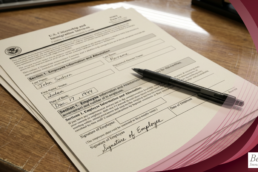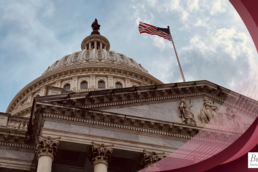H-1B status is a non-immigrant visa category in the United States that allows employers to hire foreign workers in specialized occupations, typically requiring a bachelor’s degree or higher. It enables foreign professionals to work temporarily in the U.S. for the sponsoring employer and is often used in fields such as technology, science, engineering, and healthcare. H-1B status is subject to annual numerical caps and is granted for an initial period of up to three years, with the possibility of extension.
USCIS has reached the cap limit for H-1B visas for the fiscal year 2024. This is an important development for individuals seeking H-1B visas in the coming year. In this FAQ, we aim to provide you with clear and concise information regarding the recent USCIS update.
What does it mean that USCIS reached the H-1B visa caps for fiscal year 2024?
USCIS has received a sufficient number of registrations to meet both the regular H-1B cap of 65,000 visas and the advanced degree exemption (master’s cap) of 20,000 visas. This means that the initial selection process for these visas has been completed.
What should registrants who have not been selected expect?
Registrants who have not been selected will receive notices through their online accounts over the next few days. If you properly submitted a registration and were not selected for fiscal year 2024, you will see the following status message: “Not Selected: Not selected – not eligible to file an H-1B cap petition based on this registration.”
Will USCIS continue to accept and process H-1B petitions?
Yes, USCIS will continue to accept and process petitions that are exempt from the cap. “USCIS will continue to process petitions in the following categories:
- Extending of H-1B Status: If you are a current H-1B visa holder and need to extend the amount of time you can remain in the United States, you can still file for an extension.
- Change in Employment Terms: If there is a change in the employment terms for a current H-1B visa holder, such as a change in job position or responsibilities, you can file a petition.
- Change in Employer: If you are a current H-1B holder and plan to change your employer, you can submit a petition to transfer your H-1B status to the new employer.
- Concurrent Employment: H-1B visa holders who wish to work additional H-1B jobs simultaneously can file petitions for concurrent employment.
The recent USCIS updates regarding H-1B visa caps for fiscal year 2024 have important implications for individuals and employers alike. While the regular cap and master’s cap have been reached, there are still opportunities for those eligible to continue their H-1B status through extensions, changes in employment, or concurrent employment. It is important to stay informed and prepared to take necessary steps to secure or maintain your H-1B status in the United States.
For personalized guidance and assistance, contact our office today to set up a consultation with one of our attorneys.
Ready to have Berardi on your side?
Whether you’re a business looking to hire or a professional hoping to relocate, immigration law can be complicated. But you don’t have to do it alone. Put our experience to work for you.



